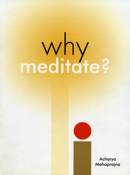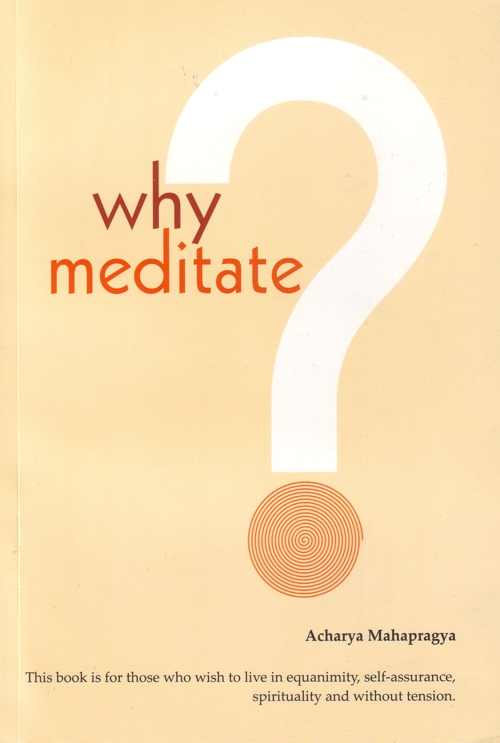

Each and every word should be weighed and then used. When a person speaks without weighing or thoroughly reviewing his/her words, he/ she will not know its outcome and will then not benefit him/herself, while, at the same time, creating a problem for others.
The queen told the king, “You are a fool.” The king was thrown into turmoil. He could not sleep the entire night. He went and sat in his royal court the next day. Whosoever came up to the king was called a fool by him. The king welcomed the nobility, commanders-in-chief and the members of the royal court thus: "Come in, fool". Every body was amazed. What could they do? No one dared speak. In those days, people were very scared of the king. At last, a poet came. The king said, "Come in, fool!" Usually, poets hardly fear anyone. The poet responded, "Maharaja Bhoj! How did you call me a fool? I am not a fool. I am going to tell you what are the characteristics of a fool.
Khaadanna gacchaami hasanna jalpe
gatam na shaucaami kritam na manye
dvaabhyaam tritiyo na bhavaami raajan!
kim kaaranam Bhoj! bhavaami murkhah
- The poet said to the king, “Maharaj! There are five ways to identify a fool:
- One who eats while walking is called a fool. Your Highness! I don't walk while eating, how can I be a fool?
- One person wants to say something. Before saying it, if he laughs then he is a fool. Your Highness! I don't behave thus.
- A foolish person is one who keeps on thinking, day and night, about a situation or incident that is already over. Now, how does it help to fret about the past? It is better to view it with understanding.
- A person who performed a little service to somebody and later keeps on boasting that he has done this and that, is a fool. But I don't do this.
- When two persons are speaking, if a third person interferes, then he is a fool.
The king realized his mistake. The queen was speaking to the minister when he, a third person, interrupted their conversation. That was why the queen had said to him: “Come in, fool.” His brain felt lighter. How much tension had been caused by one single word! - so much so that he could not sleep the entire night, and he even called all the members of his royal court fools!
One word can create a great deal of tension. What is the solution? The first thing is that control over our speech is extremely necessary. We should be aware of our words. We should not use any word, which may hurt the feeling of another person. Perhaps the best method to reduce tension and conflict is to gain control over one's own speech. It is amazing that even powerful people do not have control over their language. I read in the newspapers that the Prime Minister of India has said that in politics, cultured language needs to be used. Now attention is being given to decent language, instead of accusations and counter accusations. In the ancient tradition, people were not supposed to find fault with each other in the midst of a meeting or a conference. This is not the effective way of correcting another. When one comes to know a particular person's mistake, the best way for reformation is to call him aside and politely let him know that his approach was wrong, perhaps he should cogitate on this.
Acharya Bikshu said, “A person acknowledged the mistake of another. Neither did he tell the person who had committed the mistake nor did he tell his guru. Instead he propagated it in public. How can you believe such a person?” In this context, Acharya Bikshu cautioned, “When you find faults in someone, immediately inform him and appraise his guru. But do not spread that matter in public.”
One of the major reasons for tension in society is uncontrolled speech. When a person criticizes a big politician that creates tension not only in his party, but some times, the whole country is under stress. Meditation cannot relieve stress everywhere. Self-restraint, too, is a very important practice. One who is self-restrained is himself relaxed and also does not create tension for another.
One of the biggest causes of tension is passion. A person whose emotions are calm cannot get tense. A person came to his guru and said, “Gurudev! Show me the path of peace.” The guru tried to explain to him but the person could not understand it entirely. Then the guru said, “In the city, a man has died. I happen to know that his body has not yet been cremated and is in the graveyard. Go straight and utter twenty bad words to that dead body. Don't come back immediately, stay there for ten minutes.” The man went and did accordingly. He returned after waiting there for ten minutes. Then the guru asked him, “'Did that dead body say something to you?”
“No, it was quiet!”
“Did it get tense?”
“When it didn't speak, how can tension occur?”
The Guru answered, “The day you become a living dead body, peace will descend upon you.”
There is vital energy inside us. However, for some work you need to become inert, like a dead body. When anyone comes up to you and says bad words, don't react at once. Be relaxed within yourself. You will attain peace and inner harmony. By listening to a mere word, if you immediately get stressed, you will never get stable peace of mind.
There are two types of personalities - Independent personality and mechanical personality. Those with a mechanical personality can be likened to puppets. Their life style is very strange. If any one wants to please them, they can be pleased within a minute. If you praise them a little, they will be happy. But if you say harsh words to them, their temperature will rise within a minute. Such people don't have an independent identity. In fact, these people's lifes are controlled by others, just as puppets are regulated from outside. People whose emotions are intense, who do not have control over their passions behave in this manner. But those who have control over their emotions do not become like puppets in others' hands. They tolerate every situation. They do not get tense.
 Acharya Mahaprajna
Acharya Mahaprajna
 Copyright by Acharya Mahaprajna ©2005
Copyright by Acharya Mahaprajna ©2005